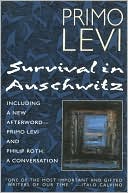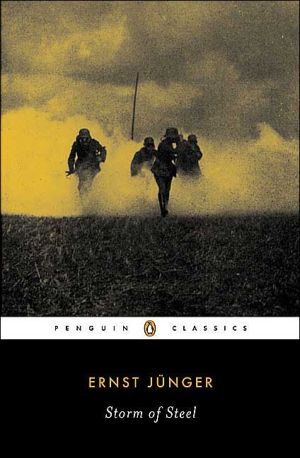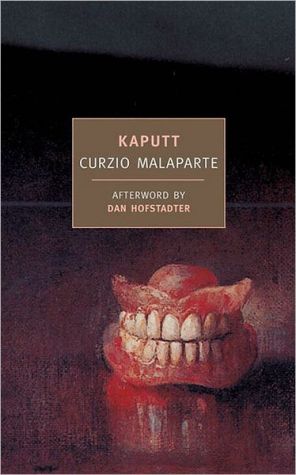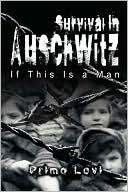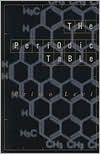Berlin Childhood around 1900
Begun in Poveromo, Italy, in 1932, and extensively revised in 1938, Berlin Childhood around 1900 remained unpublished during Walter Benjamin's lifetime, one of his "large-scale defeats." Now translated into English for the first time in book form, on the basis of the recently discovered "final version" that contains the author's own arrangement of a suite of luminous vignettes, it can be more widely appreciated as one of the masterpieces of twentieth-century prose writing.\ Not an...
Search in google:
Begun in Poveromo, Italy, in 1932, and extensively revised in 1938, Berlin Childhood around 1900 remained unpublished during Walter Benjamin's lifetime, one of his "large-scale defeats." Now translated into English for the first time in book form, on the basis of the recently discovered "final version" that contains the author's own arrangement of a suite of luminous vignettes, it can be more widely appreciated as one of the masterpieces of twentieth-century prose writing.Not an autobiography in the customary sense, Benjamin's recollection of his childhood in an upper-middle-class Jewish home in Berlin's West End at the turn of the century becomes an occasion for unified "expeditions into the depths of memory." In this diagram of his life, Benjamin focuses not on persons or events but on places and things, all seen from the perspective of a child—a collector, flaneur, and allegorist in one. This book is also one of Benjamin's great city texts, bringing to life the cocoon of his childhood—the parks, streets, schoolrooms, and interiors of an emerging metropolis. It reads the city as palimpsest and labyrinth, revealing unexpected lyricism in the heart of the familiar. As an added gem, a preface by Howard Eiland discusses the genesis and structure of the work, which marks the culmination of Benjamin's attempt to do philosophy concretely. Metapsychology Berlin Childhood is not only an autobiographical text by the literary critic, historian and philosopher Walter Benjamin. Describing Berlin around 1900 from the point of view of a child that is introduced into the customs and way of life of society, it also explores a whole era in a nutshell, as Benjamin did on the grand scale in his Arcades Project. And, not least, this book examines the structure of an individual memory and its relation to history.— Barbara Sattler
Translator's Foreword"Hope in the Past: On Walter Benjamin"by Peter SzondiBerlin Childhood around 1900: Final VersionLoggias • Imperial Panorama • Victory Column • The Telephone • Butterfly Hunt • Tiergarten • Tardy Arrival • Boys' Books • Winter Morning • At the Corner of Steglitzer and Genthiner • Two Enigmas • Market Hall • The Fever • The Otter • Peacock Island and Glienicke • News of a Death • Blumeshof 12 • Winter Evening • Crooked Street • The Sock • The Mummerehlen • Hiding Places • A Ghost • A Christmas Angel • Misfortunes and Crimes • Colors • The Sewing Box • The Moon • Two Brass Bands • The Little Hunchback • The Carousel • Sexual AwakeningFrom the 1932-1934 VersionDeparture and Return • The Larder • News of a Death • The Mummerehlen • Society • The Reading Box • Monkey Theater • School Library • New Companion of German Youth • The Desk • Cabinets • Beggars and Whores • The MoonComplete Table of Contents, 1932-1934 VersionNotesCredits for IllustrationsIndexIllustrationsWalter Benjamin and his brother GeorgThe Victory Column on KönigsplatzThe goldfish pond in the TiergartenBerlin's Tiergarten in winterMarket hall on Magdeburger PlatzInterior of a middle-class German homeCourtyard on Fischerstrasse in Old Berlin
\ Institute of Contemporary ArtsWalter has been our philosophy pin up boy for a while now and this book is another jewel in his crown. An autobiography as a series of vignettes that concentrate on memory and how we understand not just ourselves but the cities and places we live in. Underlines the works he produced later in life with a profoundly personal understanding. Brilliant.\ \ \ \ \ AmeriQuestsReaders of Berlin Childhood will delight in Benjamin’s precise prose, rich in simile and metaphor...A Proust devotee and translator, Benjamin will appeal to enthusiasts of the French master. Intensely modern in its treatment of the city, in its unique approach to autobiography, Berlin Childhood, known only to Benjamin admirers for too long and available only recently in English, belongs in the cannon of classic 20th-century texts.\ — Rachel Eve Nisselson\ \ \ \ Booklist[Berlin Childhood around 1900] is a series of miniature portraits conjuring up people, objects, streets, and interior scenes that reveal his childhood in a wealthy, assimilated Jewish family in Berlin's West End at the turn of the century. In the letter to Gershom Scholem in 1932, Benjamin notes these childhood memories are not narratives in the form of a chronicle, but individual expeditions into the depths of memory. Benjamin is a writer who deserves our full attention.\ — George Cohen\ \ \ \ \ \ H-NetWalter Benjamin’s autobiography of his early childhood is a welcome addition to the English language body of Benjamin’s work...Berlin Childhood around 1900 offers a rich portrait of Berlin at the turn of the twentieth century. Benjamin provides descriptive accounts of his experiences at famous landmarks, such as the Victory Column and the Tiergarten. His autobiography also provides an uncanny perspective of middle-class life in Berlin...While this autobiography focuses on Benjamin’s early childhood, it also profoundly speaks to Benjamin’s anxieties about living in exile and his precarious future...Benjamin’s is a rich autobiography that is translated well and provided with helpful notes by Eiland.\ — Sara A. Sewell\ \ \ \ \ \ London Review of BooksBegun in 1932 and extensively reworked between then and 1938, Benjamin's recollection of his childhood remained unpublished during his lifetime. Now available in English for the first time, this unconventional autobiography is of a piece with, and in some respects the culmination of, Benjamin's philosophical work. The three abiding aspects of his character—the flâneur, the allegorist and the collector—had already come together in Benjamin as a child.\ \ \ \ \ \ Los Angeles Times Book ReviewNow is the time to read Walter Benjamin, when doors to the future are slamming shut around us and freedom dribbles out of a modern life that is squeezed by masses of information delivered at high speeds and by a rigid morality that circumscribes behavior, movement and thought...He intended his memoir Berlin Childhood Around 1900 as a goodbye to a city he loved but knew he could never again inhabit. Begun in Spain and Italy in 1932, it was finished in 1938 but wasn't published until 1950, 10 years after he died of an intentional overdose of morphine while fleeing the Gestapo. Benjamin regarded the book as a series of "expeditions into the depths of memory," an act of "digging" for the future.\ — Susan Salter Reynolds\ \ \ \ \ \ MetapsychologyBerlin Childhood is not only an autobiographical text by the literary critic, historian and philosopher Walter Benjamin. Describing Berlin around 1900 from the point of view of a child that is introduced into the customs and way of life of society, it also explores a whole era in a nutshell, as Benjamin did on the grand scale in his Arcades Project. And, not least, this book examines the structure of an individual memory and its relation to history.\ — Barbara Sattler\ \ \ \ \ \ National PostBenjamin has an affecting approach to the victories of childhood, exhibiting pleasure and regret at once...Benjamin was acutely aware of history—the history of ideas, the history of violence and fear, the history of commerce and objects. He annotated mentally whatever he saw, then dwelt on it till it became meaningful, maybe incandescent. He tried to see everyday life through the eyes of a mystic.\ — Robert Fulford\ \ \ \ \ \ Seven OaksAll serious general readers should know something about Benjamin and his ideas...Harvard University Press is doing its best to make this a realistic goal.\ — George Fetherling\ \ \ \ \ \ The NationThe Proustian ideal of the redemption of 'lived experience' lies at the heart of Benjamin's idiosyncratic memoir, Berlin Childhood around 1900...In Berlin Childhood he offers us a cityscape of the German capital as seen through the eyes of a precocious and impressionable youth. He revisits his favorite childhood haunts—the zoos, swimming pools, grammar schools, parks and railway terminals—and milks them for utopian potential... In a sense, Benjamin regarded childhood much as he did modern literature: as an invaluable repository of utopian longings and dreams in an age of industrialized degradation. Berlin Childhood represents his own Proustian effort to recapture lost time, a time that any revolution worthy of the name would seek to restore.\ — Richard Wolin\ \ \ \ \ \ The StrangerHoward Eiland's translation...is incomparable.\ — Charles Mudede\ \ \ \ \ \ TikkunBenjamin was a consummate polymath who wrote with erudition, playfulness, and compassion...In Berlin Childhood around 1900, Benjamin turns his scalpel on his childhood, Berlin, and the capricious faculty of memory...The reader stands awestruck as Benjamin flits effortlessly from memory to memory, from his mother's sewing box to the otter's cage at the Berlin Zoological Garden, seemingly unaware of the catastrophic shadow looming over him. In Benjamin's hands, the most pedestrian moments of an inward-facing, bourgeois childhood become revelations about discipline and ideology...As with Kafka, Benjamin's prose shines most brightly through the language of parable, the cliched, but somehow unexpected aphorism...His province is the truth we always knew but could never quite put into words, the eerily reminiscent description.\ — Michael Lukas\ \ \ \ \ \ Times Literary SupplementBenjamin's work continues to fascinate and delight because it has something for everyone: the literary critic, art historian, philosopher, urban theorist and architect. Whether he is talking about children's toys, Mickey Mouse, Surrealism, photography, or Kafka, Benjamin has a knack for figuring out what they can tell us about the wider world that produced them.\ — Eric Bulson\ \ \

